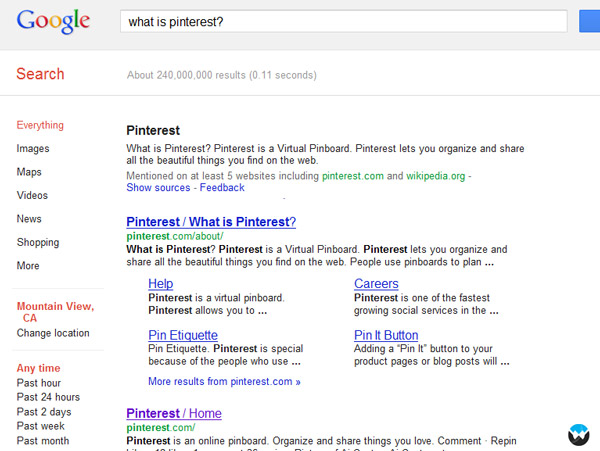Google Semantic Search is coming very soon, probably we will see it available within the next few months. This is the important change of Google that has been buzzed around in the webmaster, SEO and bloggers’ world. Unlike any other recent algorithm changes such as Panda, Search Plus Your World or Venice, Semantic Search’s goal is to provide relevant results by understanding real meaning of keywords. In this post, I will try to clarify the upcoming improvement of Google Search and how we, as a blogger/webmaster, should change SEO strategy to adapt to it.
Google Semantic Search
Actually Google started this project 2 years ago by building its own semantic database. The database includes data related to movies, places, books, enterprises and famous people. If you haven’t known what Semantic Search is, it is the new way Google will display in its search result pages. Specifically, when you type in keywords or a question, you will receive direct answer to the query, not just a bunch of web links and description like what we are seeing now.
Below is an example, when users query “What is Pinterest?”, a direct answer is provided along with some sources that the info was pulled from. The semantic-search results won’t replace the keyword-search results, they will be placed on top of the existing web-link results.

You could find the new display familiar if you searched for a few specific keywords like weather, time or mathematical calculation. The new change will expand the limitation as users can type in long questions and Google can understand what information they are finding. Undoubtedly this is a great and necessary feature for searchers when people seems very interested in the Siri voice-activated mobile search. Google absolutely doesn’t want to lose its domination in the search engine market and they will soon integrate the semantic technology to Google Assistant that will be out later this year.
SEO changes for Semantic Search
Spamming websites will lose value in the eyes of Google and they will have no chance to appear in the semantic-search result. Therefore, if you still plan on manipulating keywords and links to get high rank on Semantic Search, it will become much more difficult now because Google will just analyze and extract data from your content.
The “Content is King” quote has never become so true as in this case. SEO gurus will need to write more useful content and do more keyword research than before because they have to find out what should be written around those keywords. The keywords should have clear meaning and aim at what people will query on the search bar. For instance, when users search for information on tablets, they probably want to find “What is the best tablet?”, “what is new on iPad 2012” or “compare iPad 2 to new iPad”, etc.
If you do SEO based on natural language and target long-tail keywords, you will have nothing to worry about. Although we can’t be sure about the effect of Sematic Search on SERPs at the moment, we’d better be prepared for it. Developing helpful content with relevant keywords is the best solution for bloggers/publishers.
Let us know your thoughts on the new change of Google Search and what will you do to prepare for it?
Disclosure: We might earn commission from qualifying purchases. The commission help keep the rest of my content free, so thank you!




PrIyAnGsHu @ Tech Blog says
This is really a great concept ! It would certainly help the Google Search Engine users since they won’t have to visit all the links for what they are actually looking for, instead of that, they would get their solutions right on the SERPs !
By the way, do you have any idea on when will it be implemented by Google ?
Tuan Do says
Yes, this is an inevitable change of Google. Everybody wants an immediate and quick answer from search engines without going through a bunch of links.
I guest that Google will launch the feature within 3 months but it will take years to complete it.
MOBILETRACKER says
Very good interest to read. By Regards
HeyMaya says
This feature definitely gives Google an edge versus Siri or any other similar VA apps. Would be very interesting to see what Google comes up with “Assistant”
SEOServices says
This change will definitely change the overall perception of SEO what it looks today.